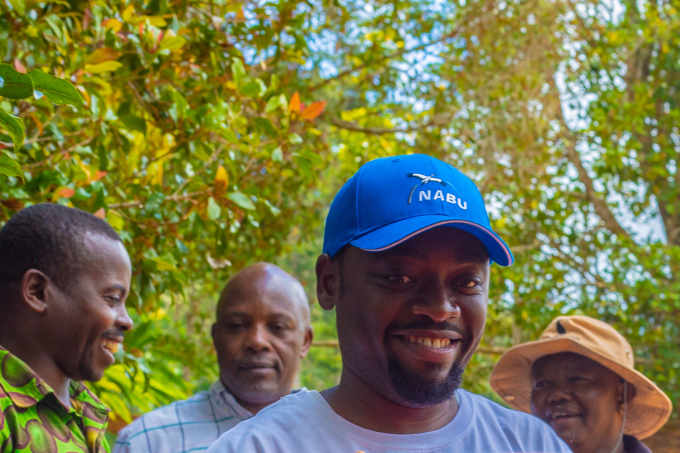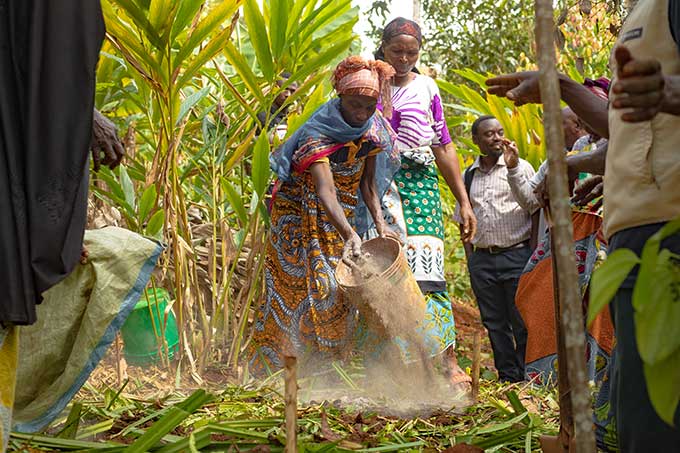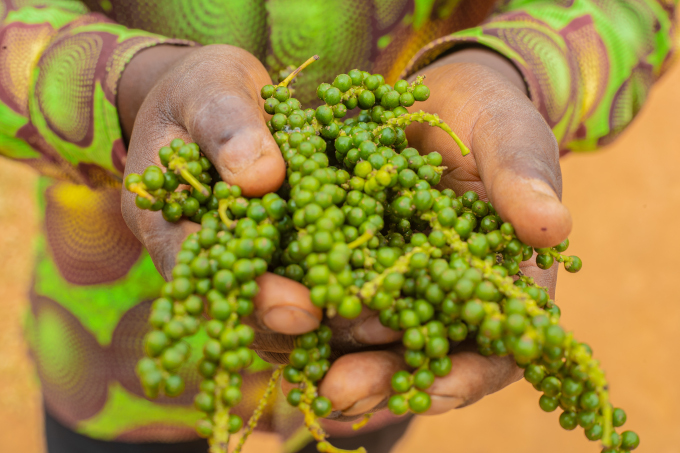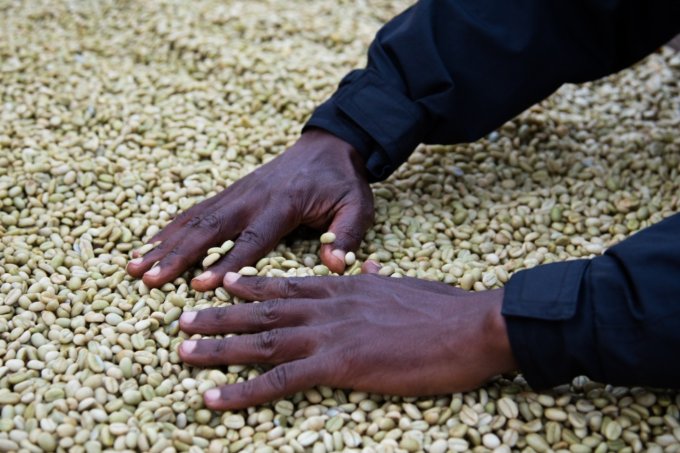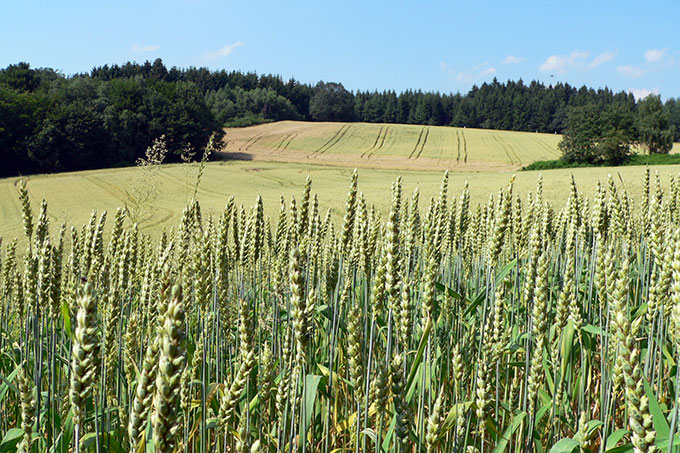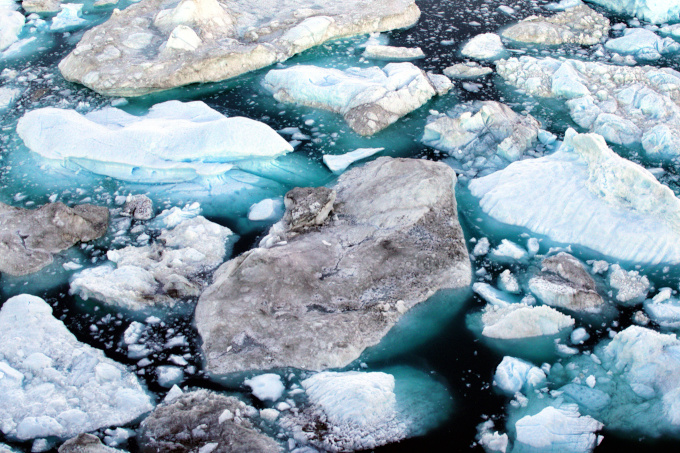When the rains don't come
Changing agriculture in a changing climate
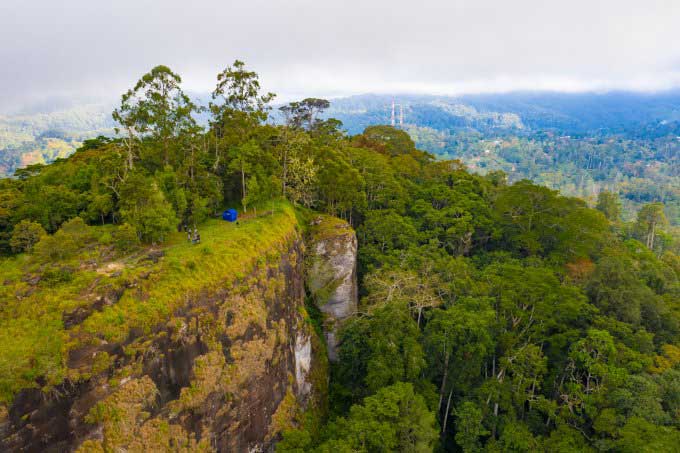
Amani Nature Reserve - photo: Nature Tanzania
The gently contoured mountain ranges of the Amani Nature Reserve and biosphere in the Usambara Mountains of northern Tanzania are dotted with the remnants of ancient rainforests. Experts estimate that the forests are over 30 million years old. “For nature lovers, the area is an absolute paradise, full of endemic species”, says Emmanuel Mgimwa, director of NABU’s partner organisation Nature Tanzania. The territory is also of great significance to people residing here. Over 80 percent of the region’s inhabitants make their living from the spice trees that coexist in the local agroforestry system with natural forests.
At present, Emmanuel Mgimwa is often out and about in the biosphere and nature reserve, which covers an area of 80 square kilometres, in order to stay informed on the progress of the AfriEvolve project. Together with project partners from Kenya, Uganda, Tanzania and Germany, he is currently visiting the project area designated for sustainable cultivation of clove trees. The partners aim to learn from each other, in order to enable effective nature conservation that protects the basis of existence for humans, animals and plants.
Against poverty and deprivation
“The goal of our transnational project AfriEvolve, which NABU called into being, is to collectively further develop the capacities of green NGOs in the various countries of East and West Africa”, Mgimwa explains. The six NGOs, including Nature Tanzania, aim to achieve a more effective approach to regional nature conservation problems, by building better organisational structures in close exchange with each other.
Additionally, Climate Smart Agriculture (CSA) is being tested as a technique with local farmers in pilot project areas throughout the six countries.
This style of agriculture, better adapted to the demands of climate change, is designed to contribute to food security through better harvest returns and simultaneously reduce greenhouse gas emissions.
Drier climate poses existential threat
For the people who cultivate cloves, cinnamon and pepper in this region feel the effects of the climate crisis on a daily basis. “They complain about new and frequent cases of crop diseases and pests”, reports Mgimwa, who has great hopes for the new CSA approach. The traditional dry and rainy seasons are all jumbled up, and sometimes the wet season fails to appear altogether. Low crop yields are the result. In this light, the situation has long since reached the level of existential threat for local people, and also contributes to poverty and migration in other African countries.
At the edge of the cultivation area for clove trees, Emmanuel Mgimwa and his co-delegates experience the tangible possibilities of CSA. Clove trees can grow to be ten metres tall – the real carbon sinks of the future. Two local farmers demonstrate how they produce organic fertiliser, which has already contributed to a significant increase in harvest yields. Carol Kabilou is impressed. She represents the project partner Nature Kenya, and intends to take some of the methods she’s learned home with her: “So far, our farmers aren’t using organic fertiliser. I want to share this knowledge with them.”
Don't wait - see cocoa!
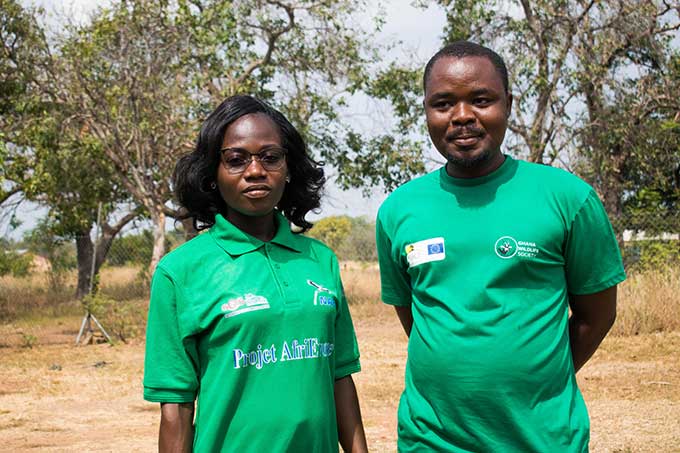
Edwige Bosso (left) with AfriEvolve CSA Field Officer Solomon Kenyenso - photo: Ghana Wildlife Society
More than 4,700 kilometres to the west, AfriEvolve is also holding meetings aimed at fostering exchange, in Burkina Faso, Ghana and Ivory Coast. One participant, Edwige Bosso, is soaking up new knowledge in exemplary fashion. She works as a Field Officer for CSA for partner project SOS Forêt, in Ivory Coast. An initial internship led to a captivating passion for nature conservation. For AfriEvolve, she is primarily responsible for sustainable cocoa cultivation and beekeeping. The corresponding pilot project areas are located within a 100 square kilometre large nature and bird paradise, Azagny National Park on the coast of the Gulf of Guinea.
Edwige summarises the positive effects of CSA unfolding in the region as follows: “This sustainable method distinguishes itself for example in that farmers no longer deforest their land for cacao cultivation, as seen in conventional agriculture, but rather leave the majority of the natural resources intact. This means not only shade and more vegetation – which are both good for the soil – but also more trees for flora and fauna, and an additional fruit harvest. This, in turn, can be taken to market, and represents a further source of income for the farmers.” Edwige Bosso has a clear vision of what needs to change by the end of the decade: “By 2030, we will see CSA in the entire surrounding area of Azagny National Park!”
Emmanuel Mgimwa and Edwige Bosso hope for a continuation of the project AfriEvolve beyond the end of 2023, when it is officially set to expire. “Because through CSA, we are teaching our farmers how to make agriculture nature-friendly, and offering them a long-term economic perspective despite the climate crisis”, says Edwige Bosso.
About the project
The project “AfriEvolve – Capacity development for green NGOs in Africa” is being implemented under the direction of NABU with six BirdLife partner organisations in Kenya, Uganda, Tanzania, Burkina Faso, Ghana and Ivory Coast. It receives financial support through Germany’s Federal Ministry for Economic Cooperation and Development (BMZ) and NABU.
related topics
NABU and six African NGOs are setting up regional cluster networks for enhancing organisational development of green NGOs in Africa and supporting local farmers in adapting agricultural systems to climate change. more →
NABU promotes sustainable regional development worldwide. Our international projects always include income-generating activities, which comprehensively address all three dimensions of sustainability - balancing economy, ecology and social equality. more →
Climate change and biodiversity loss are the most pressing challenges to humanity. Finally, people start to realize they are both sides of the same coin. NABU stands with science. We demand and support all efforts to reach a net-zero carbon economy globally. more →

